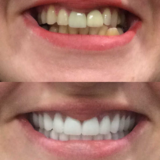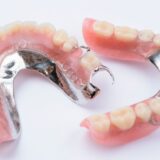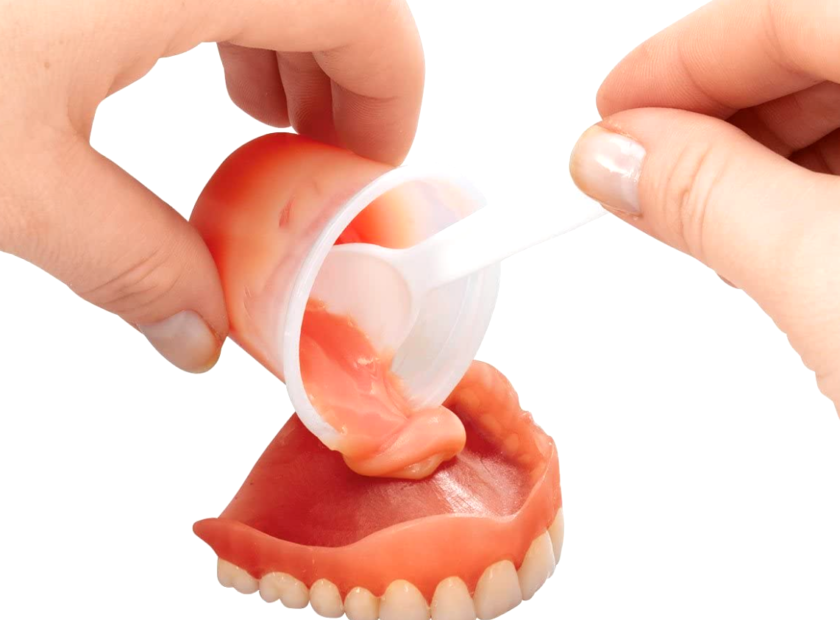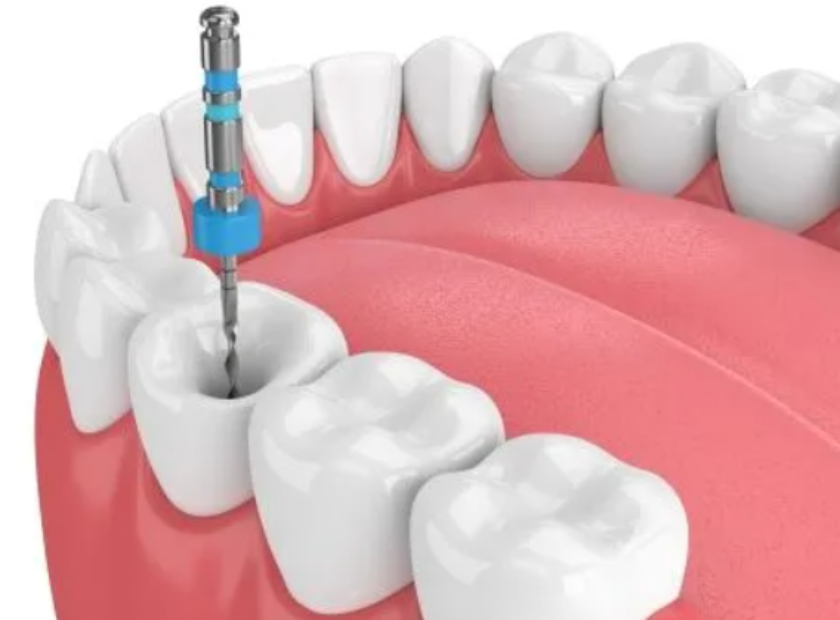Problems with Snap-in Dentures
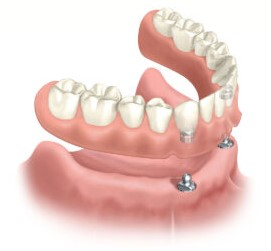
Snap-in dentures may cause discomfort, gum soreness, and potential bone resorption issues. Individuals may also experience difficulties with eating and cleaning, as well as fragility concerns related to the denture structure.
These issues can affect the overall satisfaction and functionality of snap-in dentures, making it essential for individuals to consider these potential problems before opting for this dental solution. It’s important to weigh the pros and cons and consult with a dental professional to make an informed decision about snap-in dentures.
Introduction To Snap-in Dentures
Snap-in dentures can present issues such as fragility at the implant section, making them prone to breakage. Users may also experience discomfort and gum soreness, while bone resorption is a common concern. Maintenance and cleaning are crucial for their longevity, and wearing them overnight requires regular cleaning.
| With the rising popularity of snap-in dentures, people are starting to wonder about their purpose and functionality. Snap-in dentures are designed to provide a more stable and comfortable fit than traditional dentures. They are held in place by implants that are surgically placed into the jawbone, providing a secure foundation for the denture. Despite the many advantages of snap-in dentures, there are some problems that can arise with their use. One of the main issues is that the denture is more fragile than traditional dentures, which can lead to breakage at the implant section. Additionally, bone resorption is a common concern associated with snap-on dentures. It is important to keep the denture clean and well-maintained to ensure its longevity. While there are some negatives to consider, many people have positive experiences with snap-in dentures and find them to be a great option for restoring their smile. |
Fragility and Breakage Concerns
Design vulnerabilities: snap-in dentures are more susceptible to breaking at the implant section due to their delicate design. The fine materials used make them vulnerable to breakage.
Material limitations: the quality of materials used in snap-in dentures are prone to fragility, especially at the implant section, making them more susceptible to breakage.
Maintenance Challenges
Snap-in dentures may present maintenance challenges, such as susceptibility to breaking at the implant section and potential gum soreness. These issues can impact the longevity and comfort of snap-in dentures, requiring regular cleaning and care to avoid discomfort and maintain functionality.
| Daily Cleaning Routines |
| Regularly cleaning snap-in dentures is essential for longevity and oral health. |
| Proper cleaning removes food particles and prevents bacterial buildup. |
| Avoid harsh chemicals that can damage the dentures and irritate the gums. |
| Long-Term Care |
| Regular dental check-ups are crucial to monitor the fit and condition of snap-in dentures. |
| Address any discomfort or fitting issues promptly to prevent further complications. |
Implant-related Complications
Bone resorption issues: over time, the bone underneath the denture can deteriorate, leading to a loose fit and potential discomfort.
Implant failure: in some cases, the dental implants may fail to integrate with the jawbone, resulting in the need for revision surgery.
Fit and Comfort Issues
Wearers of snap-in dentures may experience gum soreness and irritation during the initial period of adjustment. This discomfort can be a result of the dentures not fitting properly or rubbing against the gums. The adjustment period for wearers can vary, and some individuals may find it challenging to adapt to the new dentures, leading to ongoing discomfort.
Eating and Speaking Adjustments
Adjusting to eating and speaking with snap-in dentures may pose challenges. Issues like discomfort, fragile design, and potential gum soreness can impact daily activities. Proper maintenance and patience are crucial for a smooth transition to wearing snap-in dentures.
| Adjusting to snap-in dentures may require patience and perseverance. |
| Eating adjustments can be managed by starting with soft foods and small bites. |
| Speaking may feel different initially, but practice and time can improve clarity. |
| Learning curve: Understanding the fit and maintenance of snap-in dentures is crucial. |
| Adaptation tips: regular cleaning, proper storage, and professional check-ups aid in adjustment. |
Potential for Gag Reflex Stimulation
Individual Sensitivity Variances
Snap-in dentures may stimulate the gag reflex due to varying individual sensitivities. Some individuals may experience discomfort due to the presence of the denture in the mouth, leading to gag reflex stimulation. This can be particularly challenging for those with heightened sensitivity, requiring careful consideration and adjustment.
Coping Mechanisms
Patients with heightened sensitivity may benefit from employing coping mechanisms to manage the gag reflex stimulation associated with snap-in dentures. Techniques such as controlled breathing, gradual desensitization, and the use of numbing agents can help individuals adapt to the presence of the denture, minimizing discomfort and promoting successful adaptation.
Patient Satisfaction and Quality of Life
Snap-in dentures may lead to patient dissatisfaction and decreased quality of life due to issues like fragility and gum discomfort. Despite their benefits, problems such as bone resorption and fitting issues can affect the overall satisfaction with these dental appliances.
Snap-in dentures are a popular choice for those seeking a more stable and comfortable denture experience. Patients often report positive experiences with snap-in dentures, citing stability and comfort as primary benefits. These dentures also offer a realistic appearance, making wearers feel like they have natural teeth again. However, there are some areas needing improvement when it comes to snap-in dentures. The dentures are more fragile and susceptible to breaking at the implant section, which is designed to be finer and more delicate. Bone resorption is also a common concern associated with snap-in dentures. Patients should take care to clean their dentures properly to ensure longevity and avoid issues. While there are some challenges, snap-in dentures remain a viable option for those seeking an improved quality of life and dental experience.
Longevity and Replacement
| Longevity: the lifespan of snap-in dentures varies based on individual care and maintenance.Replacement frequency: snap-in dentures may need replacement over time due to wear and tear. |
Alternatives to Snap-in Dentures
Snap-in dentures can come with a host of problems, including fragility and susceptibility to breaking. Other issues may include gum soreness and discomfort, bone resorption, and the need for proper cleaning. However, there are alternatives to snap-in dentures that may offer a more secure and comfortable fit for those seeking a solution to missing teeth.
| Negatives of Snap-In Dentures | Positives of Snap-In Dentures |
| – More fragile, prone to breaking | – Stability and comfort for users |
| – Bone resorption concerns | – Realistic appearance, natural smile |
| – Cleaning and maintenance challenges | – Improved self-esteem for wearers |
Snap-in dentures are delicate but offer stability and natural appearance. Users report comfort and improved self-esteem. However, they may break easily and require regular cleaning. Bone resorption is a common issue, affecting longevity. Despite challenges, the realistic smile and stability make them a popular choice.
Frequently Asked Questions
What are the negatives of snap-in dentures?
Snap-on dentures are more fragile and prone to breaking at the implant section. They may cause gum soreness and discomfort.
Are people happy with snap-in dentures?
People are generally happy with snap-in dentures for their stability and comfort, providing a natural-looking smile.
Can you leave snap-in dentures in all the time?
Yes, you can leave snap-in dentures in all the time, but it’s important to remove them daily for cleaning to maintain their longevity.
Is it hard to eat with snap-in dentures?
Eating with snap-on dentures may take time to adjust, but it’s not usually difficult once you’re used to them.
Conclusion
While snap-in dentures offer stability and comfort, they can be prone to breaking. Patients need to ensure proper cleaning for longevity. Issues like bone resorption and gum soreness may also arise, requiring attention. Understanding these drawbacks can help individuals make informed decisions about their dental care.

